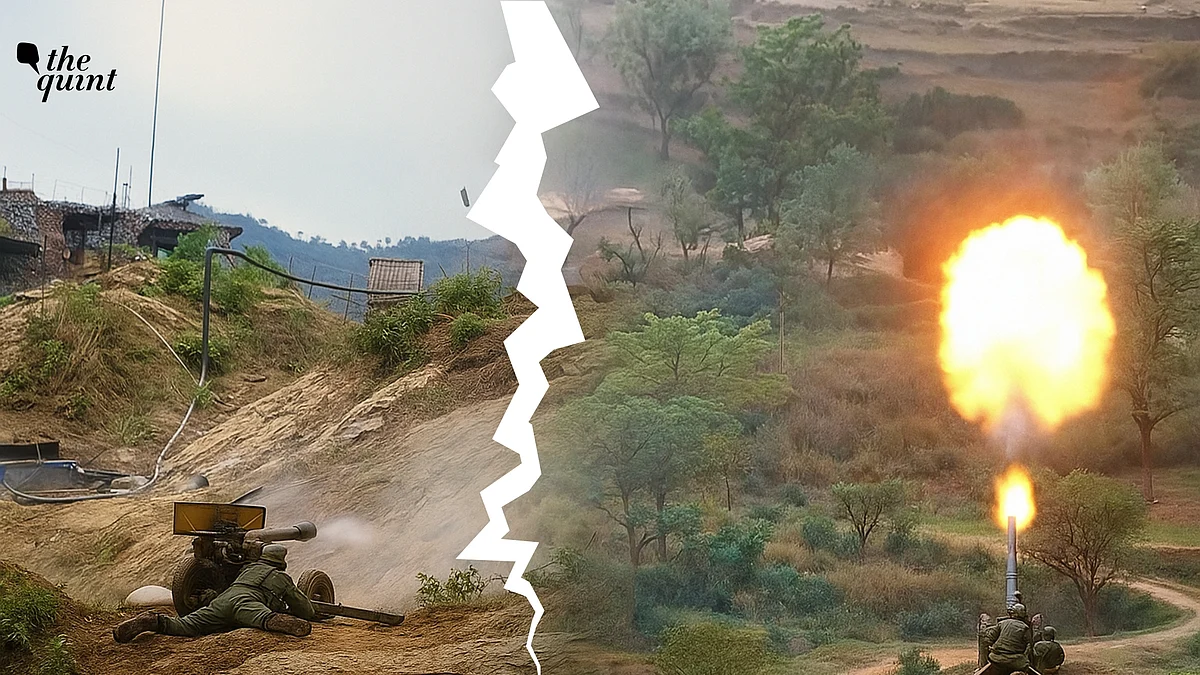
Strategy or Spectacle? Overpoliticisation of National Security Has Consequences
Operation Sindoor showed India's might & strength, but a rushed ceasefire exposed strategic flaws.

advertisement
Operation Sindoor, launched on 7 May 2025 in response to yet another terror massacre in Kashmir, appeared to include all vital elements of a nation-state finally asserting its strategic red lines. Compared to previous responses to terror-related incidents, India found a way to push back through military strikes on Pakistan-based terror camps — strikes which were claimed to be “measured, responsible and designed to be non-escalatory in nature.”
The strikes were no doubt precise, designed to be "non-escalatory," and surgically targeted at terror camps linked to Pakistani groups with a long history of cross-border attacks.
A covert military operation may perhaps remain covert. Still, the overpoliticisation and emotive appeal behind this particular escalation — in many ways encouraged by Prime Minister Narendra Modi’s own words — would have meant that a clear strategic goal was to be achieved before any ceasefire could be announced or negotiated. In this case, the ceasefire was announced by a third country’s president before our own PM or government representative.
The Familiar Pattern of Precision Without Purpose
This pattern — of operational bravery and precision without strategic clarity — has begun to repeat with unnerving frequency, which requires deeper accountability questions to be asked of the government. The Indian state often responds with resolve in the face of provocation but rarely follows through in a manner that creates lasting leverage. This is not a question of military capability or courage, both of which remain formidable. Rather, it is a question of intentionality and institutional foresight as a matter of policy, where the will to act appears to dilute just when it matters the most.
As Brahma Chellaney wrote recently:
Global Stakeholders and the Ceasefire Prematurity
What complicates this picture even further is that this outcome — the most recent ceasefire being announced — was neither unpredictable nor unintended. Diplomatic observers had long anticipated that external powers, particularly the United States under Donald Trump’s presidency, would eventually push for de-escalation, even though Trump and his Vice President JD Vance initially preferred “to stay out of a war that was none of their business.”
It’s true that a full-blown war between two nuclear-armed powers, no matter the provocation, was never going to be acceptable to Washington or to the world at large. India was obviously aware of this reality, and therefore, launched the operation not as a step toward strategic transformation, but as a brief, calibrated performance — perhaps to manage domestic outrage or simply satisfy the emotive outcry after Pahalgam by “doing something.”
Symbolism or Strategy?
But this raises deeper and more troubling questions: Was Operation Sindoor a tactical feint meant to assuage public anger, or a strategy scuttled midway due to lack of government planning and geopolitical pressure?
In choosing momentary muscle over a long-term strategic anchor, the government has risked appearing strong, but strategically less serious in carrying its purpose through — and this isn’t new. The loudest voices in the room, supported by chest-thumping jingoists, may have celebrated India’s military action against Pakistan, but somewhere mistook symbolism for strategy.
The Civil-Military Drift
The military, while respected in rhetoric, is offered limited autonomy in strategic decision-making. This raises difficult questions: Does the Indian Armed Forces have true operational independence when strategic objectives keep shifting to match political timelines? Can military planners design long-term strategies if their victories are routinely negotiated away before they can consolidate them?
This is why Operation Sindoor’s premature cessation (or at least its hurried stop without any operational or strategic clarity) appears to be a misstep. It is an extension of a decades-long trend of strategic incoherence. What makes this moment particularly unacceptable is that the stakes were clearer, the provocation undeniable, and the window for action unusually favourable. And yet, the Indian government flinched — not for the first time, but perhaps more visibly than ever.
(Ankur Singh contributed to this column.)
(Deepanshu Mohan is a Professor of Economics, Dean, IDEAS, Office of Inter-Disciplinary Studies, and Director of Centre for New Economics Studies (CNES), OP Jindal Global University. He is a Visiting Professor at the London School of Economics, and a 2024 Fall Academic Visitor to the Faculty of Asian and Middle Eastern Studies, University of Oxford. This is an opinion piece, and the views expressed are the author’s own. The Quint neither endorses nor is responsible for them.)
- Access to all paywalled content on site
- Ad-free experience across The Quint
- Early previews of our Special Projects
Published: undefined